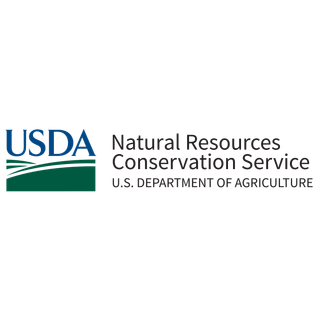WHY PERFORMANCE BASED CONSERVATION?
This approach to implementing conservation on the landscape provides the greatest benefit to water quality, while still providing a high level of flexibility for the farmer. The goal is to build the soil’s resilience to drought or flood conditions, while reducing the loss of valuable nutrients and soil that may ultimately enter our waterways. It also bridges the urban-rural divide with a shared outcome-based goal of cleaner water.
Performance based conservation benefits farmers by:
* Recognizes the uniqueness of each crop field, and the varying impact of each conservation practice.
* Provides flexibility in management changes that fit farm goals and can accommodate specific geographical resource concerns.
* Earning incentives based on performance feels less prescriptive.
Performance based conservation benefits stakeholders by:
* Quantifying reductions in phosphorus and sediment loss ensures return on investment for desired water quality metrics.
* Creating collaboration and innovation while solving community goals.
* Continual growth of program possible as interest grows and funding evolves.


Performance Based Conservation
Our Work
Sand County Foundation is accelerating the adoption of regenerative agriculture in Wisconsin’s Lake Michigan and Mississippi River watersheds by helping farmers generate whole-farm conservation plans.
- With a Wisconsin Conservation Innovation Grant provided by the U.S. Department of Agriculture, Natural Resources Conservation Service (NRCS), we are scaling performance based conservation to watersheds in central and eastern Wisconsin. Key partners in the project include Green Lake Sanitary District, Tilth Agronomy, Ozaukee County Land & Water Management Department, and the Wisconsin Department of Agriculture, Trade & Consumer Protection. Sand County Foundation assisted 23 farmers through a three-year (2023-2025) performance based conservation approach. Working with each farmer to understand their agronomic goals, practical conservation scenarios that could improve downstream water quality were modeled to quantify the potential benefits. With access to this information, the farmers made informed decisions on how to maximize the environmental returns on their conservation investment. This project advanced 23,000 acres of new regenerative agriculture practices across 9,000 unique farm acres! For a summary of final outcomes, click here.

Farmers in Wisconsin's Sheboygan River watershed are working with Sand County Foundation and a major Wisconsin-based food manufacturer to improve regional water quality. The pilot project, launched in 2023, focuses on helping the company meet its water quality objectives by adopting farm conservation practices that reduce phosphorus and sediment runoff. Point sources like the food company have two options to improve water quality. They can add wastewater treatment technology or partner with farmers in the watershed to offer water quality trading. Sand County Foundation’s team modeled various conservation scenarios for four farms to identify options that provide the greatest agronomic and environmental benefits. Click here to learn more about this project.
A three-year project is funded by the National Fish and Wildlife Foundation’s Sustain Our Great Lakes Program (SOGL), with support from General Mills and USDA’s Natural Resources Conservation Service (NRCS), creates an opportunity to advance regenerative agriculture in the Lake Michigan Basin with performance based conservation. This public-private partnership between General Mills, NRCS and NFWF is designed to sustain, restore and protect fish, wildlife and habitat. For more information on that work, click here for a farmer participation flyer, or click here for a project summary.
- Through a grant from Fund for Lake Michigan, Sand County Foundation promoted a performance-based conservation approach with the Village of Grafton, and other communities and industries in the Milwaukee River watershed. This collaboration has created a successful adaptive management strategy where Grafton's water treatment facility partners with farms to improve water quality and meet permit needs. Making thoughtful connections and training others to facilitate this new strategy allows Grafton to build a strong future on the base Sand County Foundation helped establish. For more information on that work, click here.
RESOURCES FOR PERFORMANCE BASED CONSERVATION IMPLEMENTATION
Watershed Based Approach to Water Quality Compliance: This guidance document for Wisconsin municipalities incorporates lessons learned during our pilot project with the Village of Grafton. To view the document click here.

Sand County Foundation's Approach to Peformance-Based Conservation: Details on environmental quantification Sand County Foundation has utilized for performance-based conservation projects prior to 2025. Click here.
Implementing Performance-Based Conservation: Options for modeling water quality outcomes from farm management scenarios from various stakeholders. Click here.
Grafton Watershed Partnership
In the News:
Wisconsin DNR Recognizes Benefits of Performance Based Conservation
Sand County Foundation Receives Grant to Incentivize Conservation on Wisconsin Farms
Sand County Foundation Receives Grant to Accelerate the Adoption of Regenerative Agriculture
SCF's Performance Based Conservation Work Featured in Story on Great Lakes Clean-up Efforts









